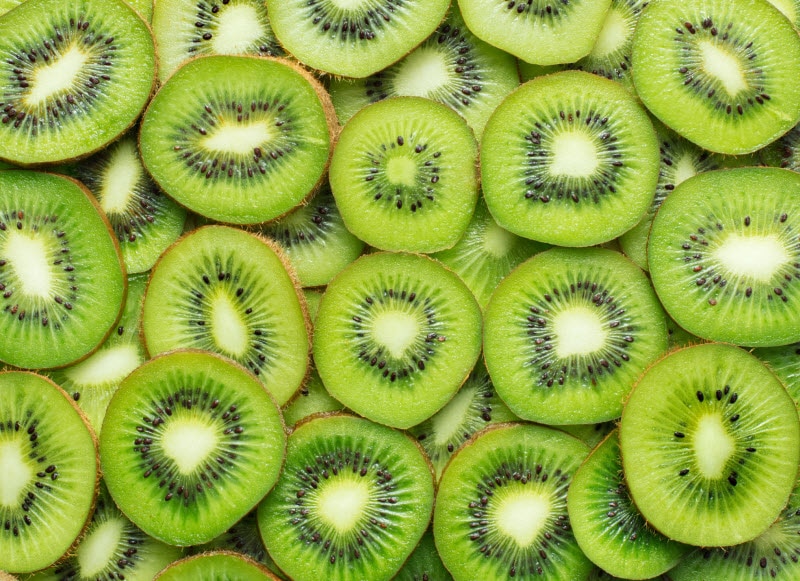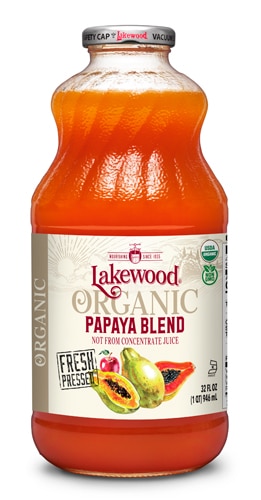A new study suggests that eating plenty of fruits and vegetables is a powerful way to keep us strong and healthy well into our golden years.
People in their 50s and beyond who consume higher amounts of
vitamin C -- found in all fruits and vegetables -- retain more muscle mass as they age, according to researchers at the University of East Anglia in England.
†

The researchers note that vitamin C plays a key role in protecting the body's cells and tissues from damage linked to free-radical substances. Limiting this damage helps slow down age-related decline and frailty.
†
While most people do not get enough vitamin C in their diet, fixing the situation is relatively easy, according to Dr. Richard Hayhoe, one of the researchers involved in the study.
"We're not talking about people needing mega-doses," Hayhoe says in a news release. "Eating a citrus fruit, such as an orange, each day and having a vegetable side to a meal will be sufficient for most people."
Other health benefits of vitamin C
Vitamin C offers additional health benefits, says Caroline West Passerrello, a Pittsburgh-based registered dietitian nutritionist and spokesperson for the Academy of Nutrition and Dietetics.
Passerrello says vitamin C has been linked to boosting brain health. "As the body ages, it is important to maintain our intake of vitamin C to prevent cognitive decline," says Passerrello, who is also owner of
Caroline West LLC, a consulting practice that develops nutrition education programming and training for organizations.
†
For example, studies looking at memory in adults over the age of 60 years have found a relationship between adequate vitamin C intake and an increased ability to recall information, she adds.
†
Other benefits of vitamin C are that it:
- Boosts the body’s ability to fight infections†
- Helps wounds to heal, and assists in the formation of scar tissue†
- Strengthens and repairs cartilage, bones and teeth†
- Aids the absorption of iron†
The jury is out on one alleged perk of consuming vitamin C – that it prevents or shortens the duration of the common cold. Some studies have shown no such benefit, while others have indicated the people who regularly consume vitamin C might experience milder colds.
†
Getting more vitamin C into your diet
Because vitamin C is a
water-soluble vitamin, it doesn't hang around in your body for long. That means you have to consume vitamin C regularly to avoid having a shortage of the vitamin in your system.
"Vitamin C cannot be produced by the human body, so it’s important that we get enough through our diet," Passerrello says.
Eating a diet rich in fruits and vegetables is the best
way to get more vitamin C into your body. Citrus fruits, tomatoes and red peppers are “excellent sources” of vitamin C, she adds.
Other fruits rich in vitamin C include:
Vegetables rich in vitamin C include:
- Broccoli, Brussels sprouts and cauliflower
- Leafy greens, such as spinach, cabbage and turnip greens
- Sweet and white potatoes
- Winter squash
To get the most from your fruits and vegetables, try to avoid cooking them.
"Cooking methods can impact the level of vitamin C in foods, so aim to consume as many fruits and veggies in their raw form as possible," Passerrello says. "Or, lightly steam or sauté foods to make them more appealing and soft."
Passerrello notes that people should limit themselves to no more than 2,000 milligrams of vitamin C per day. Consuming excess amounts of vitamin C can lead to symptoms such as upset and diarrhea.
"In this case, more is not better," Passerrello says.
†These statements have not been approved by the Food and Drug Administration. These products are not intended to diagnose, treat, cure or prevent disease.
 The researchers note that vitamin C plays a key role in protecting the body's cells and tissues from damage linked to free-radical substances. Limiting this damage helps slow down age-related decline and frailty. †
While most people do not get enough vitamin C in their diet, fixing the situation is relatively easy, according to Dr. Richard Hayhoe, one of the researchers involved in the study.
"We're not talking about people needing mega-doses," Hayhoe says in a news release. "Eating a citrus fruit, such as an orange, each day and having a vegetable side to a meal will be sufficient for most people."
The researchers note that vitamin C plays a key role in protecting the body's cells and tissues from damage linked to free-radical substances. Limiting this damage helps slow down age-related decline and frailty. †
While most people do not get enough vitamin C in their diet, fixing the situation is relatively easy, according to Dr. Richard Hayhoe, one of the researchers involved in the study.
"We're not talking about people needing mega-doses," Hayhoe says in a news release. "Eating a citrus fruit, such as an orange, each day and having a vegetable side to a meal will be sufficient for most people."



